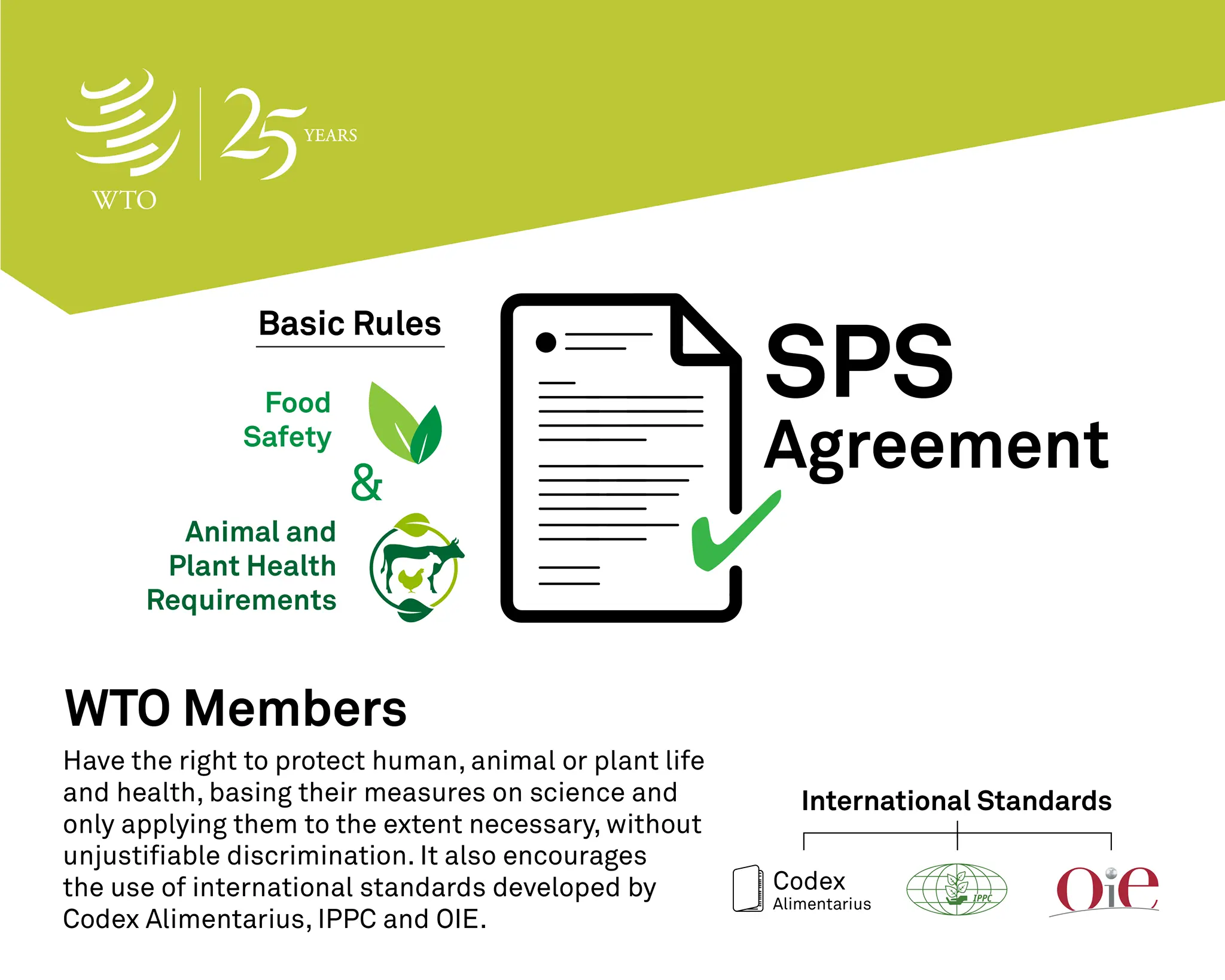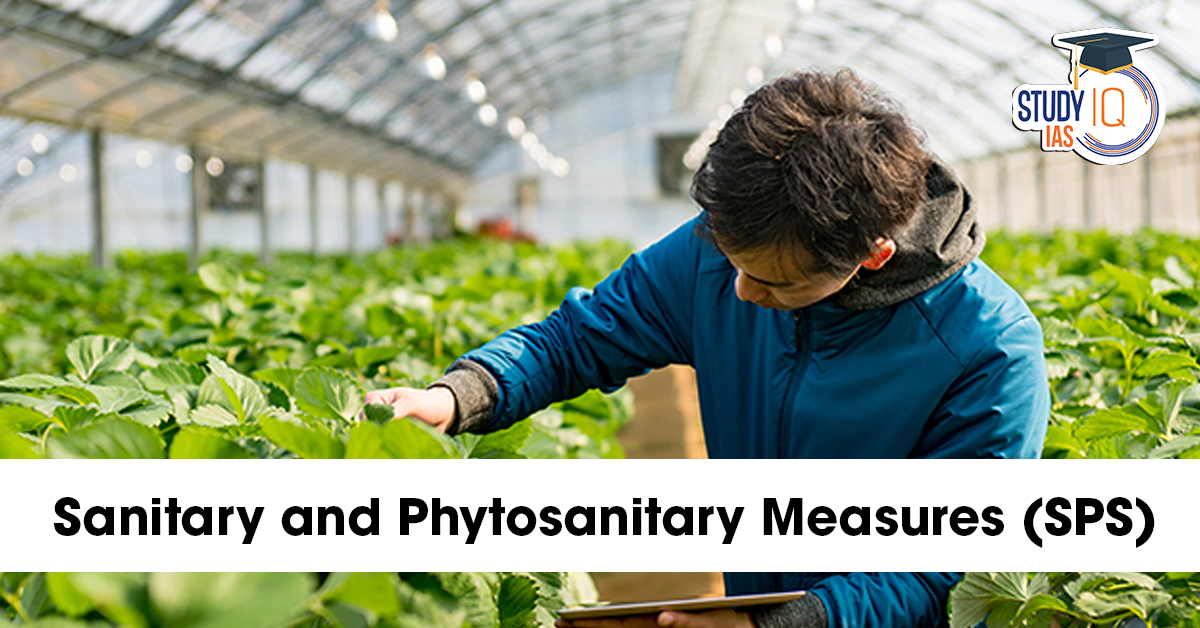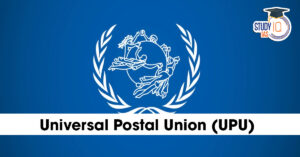Table of Contents
Context: India and the European Union (EU) continue to differ on Sanitary and Phytosanitary (SPS) measures, especially over strict EU food safety standards such as pesticide residue limits and aflatoxin levels, impacting agricultural exports from India.
Sanitary and Phytosanitary Measures (SPS) Agreement
- The Sanitary and Phytosanitary Measures (SPS) Agreement is a treaty under the World Trade Organization (WTO).
- It came into effect on January 1, 1995, alongside the establishment of the WTO.
- It sets rules for food safety and animal and plant health standards in international trade.

Key Provisions of the SPS Agreement
- Scientific Basis
- SPS measures must be based on scientific principles and supported by sufficient evidence.
- Provisional measures may be allowed in cases of insufficient evidence, but must be reviewed within a reasonable time.
- Harmonization
- Member countries are encouraged to align their SPS measures with international standards.
- Key standard-setting bodies include:
- Codex Alimentarius Commission (food safety)
- OIE (World Organisation for Animal Health)
- IPPC (International Plant Protection Convention)
- Equivalence
- Countries should accept equivalent SPS measures from other nations if they provide a similar level of health protection, even if the methods differ.
- Risk Assessment
- Members must carry out scientific risk assessments to determine the appropriate level of health protection.
- These assessments consider the impact of pests, diseases, and contaminants.
- Regionalization
- Countries should recognise pest- or disease-free zones, even if these are just specific regions within a country or group of countries.
- Transparency
- Members must notify the WTO about changes in SPS measures.
- They must also share regulatory information through the WTO’s SPS Notification System.
- Dispute Resolution
- If disputes arise and consultations fail, the matter can be taken to the WTO’s Dispute Settlement Body (DSB).


 United Nations General Assembly (UNGA), ...
United Nations General Assembly (UNGA), ...
 Universal Postal Union (UPU), Objective,...
Universal Postal Union (UPU), Objective,...
 World Meteorological Organisation (WMO),...
World Meteorological Organisation (WMO),...




















